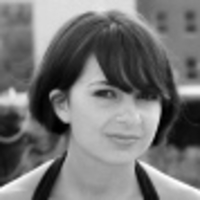"Where are you from?" people ask. I like to play it coy. I tell them I'm from California, since I was born and raised there. Inevitably: "No, no... Where are you from?" Oh, my mother is Lebanese. "Your mother's family—are they Christian or Muslim?"
Half-way around the world and almost three generations later, the sectarianism that made my family leave Lebanon still follows me. It reared its head last week: the man who is thought by authorities to have made the anti-Islam video roiling much of the Muslim world was not just any American racist with a shallow and bigoted understanding of Islam. A Coptic Christian from Egypt, Nakoula Basseley Nakoula is an Arab-American Christian like me. Yet we articulate our identities so differently.

Much of the Arab community found itself the target of bigotry after 9/11, not its purveyors. But Nakoula's Islamophobia wasn't an ignorant reaction to the attacks. Rather, his hatred has roots in a long history of persecution in the region that forced him out, as it did my family. His extreme vitriol focused intensely on degrading and mocking Muslims, belittling their place in the Middle East. I sometimes see shades of it in my own Lebanese Christian circles, but I went the other way.
ADVERTISEMENT
Before 9/11, it never occurred to me that I was Arab-American or that my family's ethnic background carried political consequences. In the days following the attack, though, Frank Roque mistook a Sikh man in Arizona for a Muslim, and killed him. Before the crime, he reportedly told his wife, "All Arabs should be shot." That could apply to me.
The shared experience of vilification and a climate of fear in Arab Mulsim communities—debates among women about wearing hijab in public, and the targeting by security measures—awakened my Arab-American identity. As I got older, I became increasingly politicized, writing about and advocating for Arab and Muslim rights.Though religion had little to do with my work, when I wrote about Islamophobia and the so-called Ground Zero Mosque, some of my Christian family members took the opportunity to remind me that we had left Lebanon because of "those people"—meaning Muslims who wanted to build a community center downtown, not the American racists trying to stop them.
Now, I'm watching the news unfold about Nakoula's film (clips), known as The Innocence of Muslims, and the uproar throughout the Muslim world. The YouTube video, in addition to airing heinous tropes about Arabs and the Middle East, visually portrays the Prophet Mohammad—strictly prohibited in Islam—and mocks him as a homosexual bastard.
From North Africa to Indonesia, conservative Muslim demonstrators gathered around U.S. diplomatic installations. Some of the protests turned violent, with attendees storming the installations and clashing with security forces, leading to deaths and injuries. (In Libya, four American diplomats were killed in what may have been a premeditated attack taking advantage of the demonstration's timing.) In Iraq, protesters gathered in the street burning both American and Israeli flags. In Lebanon, a KFC was set on fire and burned to the ground.
The misplaced logic blaming the West at large—and, inexcusably, attacking its civilian symbols—for the film seems to be that freedom of speech protects even bigotry, particularly in the U.S., where very few exceptions are made to the First Amendment. But, as a Muslim Brotherhood leader in Egypt wrote to the New York Times, the nascent democracy there affords its citizens free expression, too, but not to cross into violence. The chasm between American society and conservative Muslims, as the drama has unfolded, seems to be that one sees a sacrosanct right to criticize anything, including what the other deems sacrosanct.
As a non-Muslim, I'm not qualified to comment on whether or not unmitigated reverence for Mohammad can be toxic. I try to be tolerant of Muslims' reverence for their prophet and support their right to peaceably assemble over it. However, I can say that as an American, hyphenated though I may be, I'm appalled when free speech is harnessed as an excuse for intolerance and hatred—sentiments my family, Nakoula and every Arab-American, Christian and Muslim alike, know all too well.
After all, we didn't really come to this country because of "those people." We came here because of persecution. Isn't it our duty to fight against it?






